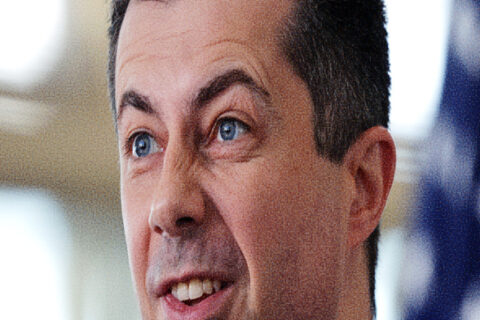As the march towards election day 2024 approaches, the narratives that define the election season take shape now. The current battle is over the economic narrative. Journalists and pundits are disturbed that Americans do not realize how things are better today than they were in January of 2021. Why can the plebeians not see the contorted statistical truth? This is part of the failed return to normalcy narrative that was the sales pitch in 2020, but it is one that the managerial class is not a monolith on and this makes the most loyal regime elements upset. This gap between message and reality on the ground is an issue and will be a growing issue as the regime is desperate for legitimacy.
In the complex tapestry of political regimes, the manipulation of economic statistics stands as a formidable tool for those seeking to maintain a facade of stability and control. China’s statistics have been mocked for years as detached from reality or unreliable in an effort to sell to Chinese citizens and potential foreign clients that everything is growing fast. The CCP has delivered to millions, but maybe not as fantastic as they proclaim. We can see the intricate interplay between questionable legitimacy and the strategic concealment of recessions, unraveling the motives behind such actions and their profound implications for both governance and the governed.
At the heart of this deceptive play lies the inherent connection between economic performance and political legitimacy. A regime faced with doubts about its mandate to govern may resort to fabricating economic indicators to project an image of prosperity. By doing so, it seeks to bolster public confidence, portraying itself as a capable steward of the nation’s well-being. At this point in American history with the gulf between the ideology of the governing class and nearly half of its internal subjects, delivering on prosperity is a major support for their continued rule.
One primary motive for such manipulation is the fear of unrest and dissent. A government with questionable legitimacy understands that economic downturns can serve as potent catalysts for public discontent. A recession brings with it rising unemployment, falling incomes, and a general sense of insecurity. By concealing the true extent of economic challenges, the regime attempts to maintain a semblance of normalcy, suppressing the potential for mass protests or calls for political change. Americans know the federal government will jail those who walk around the Capitol during a riot, but could they throw thousands more into jail for basic protests.
Additionally, a government’s standing on the global stage is intricately tied to its economic performance. A regime struggling with legitimacy may resort to statistical manipulation to present a facade of economic strength, thereby safeguarding its international reputation. Appearing robust and prosperous, the government seeks to attract foreign investments and partnerships, essential components for maintaining stability and consolidating power. This has been the post-WW2 sales pitch to potential foreign clients. Believe in what we believe and look at all this wealth. China’s model has been an alternative, and often times, China’s foreign aid now includes the sales pitch that they will not interfere with internal governance nor require the LGBT+ smorgasbord for any vassal.
The manipulation of economic statistics also serves as a smokescreen for policy failures. One can view the post-Obamacare focus on access to coverage without any discussion of the poor quality of coverage, the increase to all plans’ premiums or the massive increase in out-of-pocket liability for normal insurance covered individuals. A government grappling with mismanagement or misguided policies may resort to inflating economic figures to divert attention from its shortcomings. By masking the reality of a recession, the regime sidesteps accountability and buys time to implement corrective measures without facing immediate public backlash.
Moreover, the political survival of leaders within the regime often hinges on their ability to deliver on promises of economic prosperity. A recession, if exposed, could jeopardize their credibility and weaken the very foundations of the regime. As a result, leaders may find themselves compelled to engage in statistical subterfuge, creating a distorted narrative that aligns with their narrative of effective governance.
The consequences of such manipulation extend beyond the political realm and infiltrate the economic fabric of society. By obscuring the true state of the economy, the regime misguides businesses, investors, and consumers. Inaccurate economic signals can lead to poor decision-making, hindering long-term economic stability and exacerbating the challenges posed by an actual recession. These little lies seep deeper as the manipulation of economic statistics erodes the trust between the governed and the governing. A government that deceives its citizens about the economic realities they face fosters an environment of suspicion and cynicism. As the truth unravels, the damage to public trust is profound, leaving lasting scars on the social contract that binds citizens to their government.
Lies even the most oblivious of citizens can see can call any other regime claim into question. What else are they lying about? The manipulation of economic statistics by a regime with questionable legitimacy is a perilous gambit with far-reaching consequences. Driven by the imperative to preserve power, such regimes engage in a delicate tight rope walk, seeking to maintain a facade of prosperity while the economic foundations crumble beneath. The impact of this manipulation extends beyond mere numbers, shaping the narrative of governance and influencing the very fabric of society. Citizens can overlook fringe causes pushed into the spotlight when everyone is making money. No one wants to be lectured about trans rights, the rights of foreign invaders or the need to fund trillions in climate reparations when they cannot make rent.
-By Sam Dexter

Visit The American Sun at The American Sun






Your choice of China and the CPC as examples of economic fraud is peculiar. Deng’s reforms were the greatest economic success story in history. In one generation, the CPC moved 800 million people from poverty to a standard of living equal to or better than the EU. China has the largest economy in the world, and the US has fallen behind India, which is the second largest economy. China has a third of the world’s manufacturing capacity, and that share is increasing. China has been at peace for almost 50 years (one brief war with Vietnam), whereas the US has been continuously at war since 1898. America’s record on all issues is shameful.
The government has been lying since 1789. Just about everything they say and do is a lie. Maybe I’m inferring incorrectly, but this article seems to imply that it’s a new and recent phenomenon. Oh, and by the way, 2024 isn’t election season, it’s selection season. Another puppet is selected by the central bankers, and your vote has absolutely nothing to do with that selection. It never has.